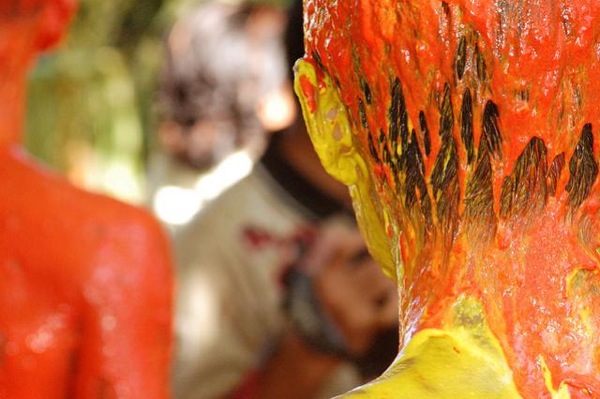Eid in the Maldives, an islamic Celebration of Generosity
The Muslim festivals of Eid can be said to be the Islamic equivalent of Christmas. They are the most important religious holidays celebrated by Muslims worldwide. Eid ul-Fitr marks the end of Ramadan, the holy month of fasting, and Eid al-Adha celebrates the Hajj pilgrimage to Mecca. All over the world, Islamic nations celebrate Eid in their own unique ways, but one quality shared by all of them is the importance of the traditions of generosity and hospitality in Islam.
In the Maldives, while Eid customs have seen significant changes with time – modern music concerts and shows held in the capital city of Malè and other islands – there is a renewed focus on reviving traditional sports such as Baibala , now held annually as a competition during which local teams vie for a grand prize.
Throughout the years, though, the one thing that has not changed about Eid festivals is that they are a way to transcend the mundane tasks of everyday life and look beyond, for the ultimate truth and light of humanity.
A Day of Prayer and Feasting
Eid is celebrated throughout the small island nation of Maldives, which converted to Islam in 1153. Local celebrations begin soon after sunrise with the citizens – men, women and children – dressing up in their newest and finest clothing to attend the Eid prayer in a large congregation to seek divine blessing. The prayer is followed by the khutbah, or sermon, reminding everyone in the community about their responsibilities and obligations, like the need for goodwill, kindness, mercy and generosity toward their fellows and humanity as a whole.
After the Eid prayer, everyone heads home to elaborate feasts consisting of biriani and similar rice dishes, as well as different varieties of spicy curries, all followed by a helping of mouthwatering local desserts such as bondibai. Friends and loved ones are more than welcome to join; one may enjoy a hearty meal at two to three houses for breakfast alone. Most of the morning and afternoon is then spent visiting friends and distant relatives, exchanging greeting and gifts.
An Evening of Dance
Evening is a time for dances and other festivities held especially in the islands, including Boduberu, which is a traditional Maldivian mix of songs and dances for both men and women, all performed by beating drums. There is a distinctly African influence to it.
Dhadi Jehun is another traditional Maldivian stick dance performed in a smooth rhythmic fashion. Each dancer holds a 90-centimetre-long stick, called a dhandi, which he knocks against that of a partner. The dancing is done to the rhythm of the music and the sticks.
Finally, there is Kadhamaali, during which people of all ages participate enthusiastically in a fun and exciting traditional game. Each performance, which begins with banging on drums and a kadhaa (a copper instrument) usually involves around 30 men who don different costumes representing evil spirits and ghosts, called maali.
In the capital city of Male’, National Security services accompanied by brass bands and cadets parade through the streets.
Article from http://www.thetravelword.com/2010/12/12/eid-in-the-maldives-an-islamic-celebration-of-generosity/


